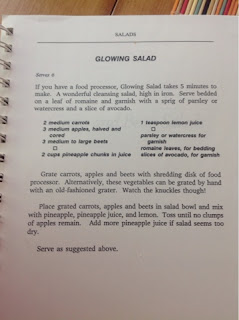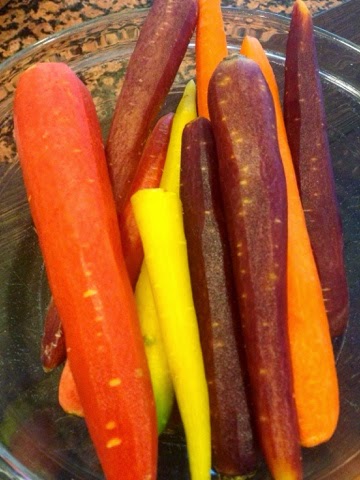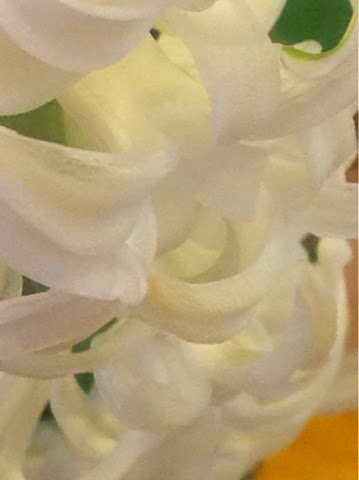
It is commencement season, a time of new beginnings and setting forth on new adventures. This week is also Nurses Week, a week set aside each year to honor nurses. I have been reflecting on my nearly four decades in the nursing profession...what I imagined as a young nurse setting sail into the world of healthcare and where I have found myself so many years later.
Several of my nursing colleagues and I have been thinking about our stories or narratives as nurses -- where have we been, where are we going, what has shaped us and what gives our work meaning? #WhyINurse
So, in the spirit of this reflection and with immense gratitude to those who have allowed me to learn from their lives and teaching, I share the commencement address I gave several years ago as I completed my graduate work at the
Tufts University School of Medicine. Several years later, I am happy to say that I am still discovering my way to Ithaca. My wish for each of you is for your journey to be long and circuitous as well.
~Pam

Commencement Address
Tufts University School of
Medicine: Pain Research, Education and Policy Program
To the faculty, administration, fellow graduates, and especially
to my wonderful family; I am both incredibly honored and extremely humbled to
stand before you today.
It has been 32
years since I last wore a cap and gown and I am reminded today of that spring day
so long ago in Ann Arbor, Michigan. In
1979, the adventure on which I was embarking appeared so clear and direct, much
like Homer’s Odysseus as he set off from Troy enroute to Ithaca. But as with Odysseus, we often find our
journeys far more complicated than we ever anticipated…meeting not only with
trade winds and gentle seas but also with violent storms and towering waves
that can batter us and throw us off course. And so it is for the patients we meet each day in healthcare. They, too, are voyagers on their own Homeric
journeys, each filled with unique, authentic stories waiting to be told. It is up
to us, in healthcare, to elicit, acknowledge, and honor these stories, to bear
witness to their individual journeys and to help them navigate through
difficult passages.
When we first enter
the world of healthcare our mission seems clear and direct – we want to quickly
fix what we see as broken, to cure what we see as diseased. While
this is a noble mindset, we often miss the opportunity to heal when we blindly set
out in this direction. What I have
learned is that often we cannot cure, no matter how desperately we try, but the
potential for healing is always possible.
This statement may seem incongruous
to what we see as the measurement of medical success. But, as we look broadly at what healing really
is… isn’t it all about reducing pain and suffering…about living and dying with
dignity, grace, and a sense of purpose? We
meet our patients at many points on their journeys and I see our work as
assisting them in gathering the necessary tools of healing to find safe passage
on their voyages.
During the course of my studies here at Tufts I have
discovered many tools of healing. The Pain
Research Education and Policy program was not on my navigational charts when I
set off in 1979, but I am so grateful that I found my way here. Through my work with inspirational faculty
mentors, especially Dr. Bradshaw, Dr. Glickman-Simon and Dr. Carr, as well as
Dr. Gualtieri in the Health Communications program, I have explored pain not
only as a physical manifestation of injury or disease, but also as a complex
pattern of psychosocial and cultural components that contribute to a sense of suffering. Addressing the suffering has a direct impact
on reducing the sensation of pain. The
Pain Research, Education and Policy Program has allowed me to explore the
intersection of modern medicine, technology, ancient healing practices of the
body and mind and spirit, and the innate human desire to survive adversity. It has given me a voice in advocacy and
scholarship by helping me to articulate the meaning of pain and suffering for
individuals and society. For this I will
always be grateful.
Some of you may be
familiar with the poem, Ithaca, by Constantine Covafy. It is a poem that has kept me company on my
journey and I would like to offer it to you as a metaphor for this commencement,
as each of us sets forth on new journeys and adventures:
When
you set out on your journey to Ithaca,
pray that the road is long,
full of adventure, full of knowledge.
The Lestrygonians and the Cyclops,
the angry Poseidon -- do not fear them:
You will never find such as these on your path,
if your thoughts remain lofty, if a fine
emotion touches your spirit and your body.
The Lestrygonians and the Cyclops,
the fierce Poseidon you will never encounter,
if you do not carry them within your soul,
if your soul does not set them up before you.
Pray that the road is long.
That the summer mornings are many, when,
with such pleasure, with such joy
you will enter ports seen for the first time;
stop at Phoenician markets,
and purchase fine merchandise,
mother-of-pearl and coral, amber, and ebony,
and sensual perfumes of all kinds,
as many sensual perfumes as you can;
visit many Egyptian cities,
to learn and learn from scholars.
Always keep Ithaca on your mind.
To arrive there is your ultimate goal.
But do not hurry the voyage at all.
It is better to let it last for many years;
and to anchor at the island when you are old,
rich with all you have gained on the way,
not expecting that Ithaca will offer you riches.
Ithaca has given you the beautiful voyage.
Without her you would have never set out on the road.
She has nothing more to give you.
And if you find her poor, Ithaca has not deceived you.
Wise as you have become, with so much experience,
you must already have understood what these Ithacas mean.
And so, as you set sail from this commencement for your Ithaca…I
wish you a long and prosperous journey, the privilege of listening to many stories,
and the wisdom of healing.
Thank you and Bon Voyage.
 "It’s shaped like an
extra large egg – perhaps the size of an ostrich egg, and cuts easily in half
with a knife. It’s very much like a kiwi in terms of texture and
taste. Like the kiwi it shares the black crunchy bits inside and tastes
better cold (in my opinion), although not quite as flavorful. The skin is
tougher than the kiwi and once cut into slices you can easily peel it
back and eat like an orange. Overall, very enjoyable and refreshing." ~ N.B.
"It’s shaped like an
extra large egg – perhaps the size of an ostrich egg, and cuts easily in half
with a knife. It’s very much like a kiwi in terms of texture and
taste. Like the kiwi it shares the black crunchy bits inside and tastes
better cold (in my opinion), although not quite as flavorful. The skin is
tougher than the kiwi and once cut into slices you can easily peel it
back and eat like an orange. Overall, very enjoyable and refreshing." ~ N.B.
 "It’s shaped like an
extra large egg – perhaps the size of an ostrich egg, and cuts easily in half
with a knife. It’s very much like a kiwi in terms of texture and
taste. Like the kiwi it shares the black crunchy bits inside and tastes
better cold (in my opinion), although not quite as flavorful. The skin is
tougher than the kiwi and once cut into slices you can easily peel it
back and eat like an orange. Overall, very enjoyable and refreshing." ~ N.B.
"It’s shaped like an
extra large egg – perhaps the size of an ostrich egg, and cuts easily in half
with a knife. It’s very much like a kiwi in terms of texture and
taste. Like the kiwi it shares the black crunchy bits inside and tastes
better cold (in my opinion), although not quite as flavorful. The skin is
tougher than the kiwi and once cut into slices you can easily peel it
back and eat like an orange. Overall, very enjoyable and refreshing." ~ N.B.



























